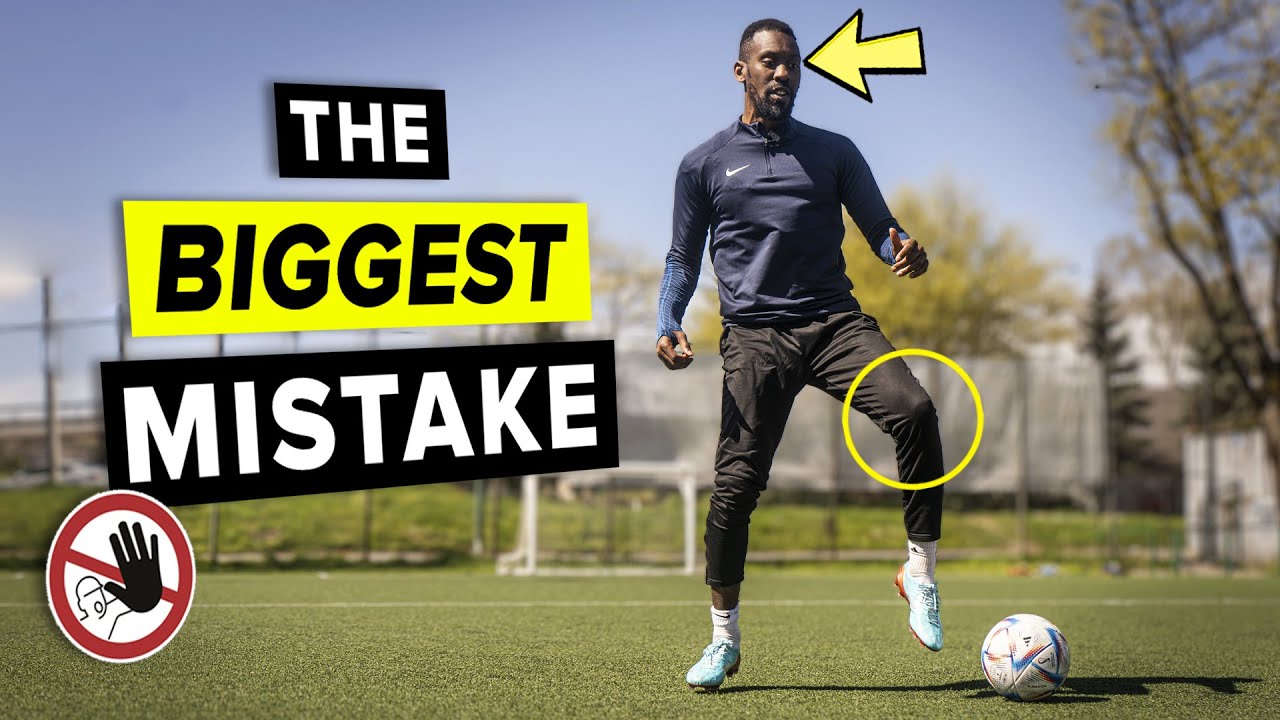Introduction
Football, or soccer, is a beautiful game that requires skill, strategy, and teamwork. However, even the best players and teams can make mistakes that cost them goals, games, and even championships. In this article, we will explore the most common football mistakes to avoid, from basic errors to more complex tactical blunders. Whether you’re a player, coach, or fan, understanding these mistakes can help you improve your game and appreciate the beauty of football even more.
Mistake #1: Poor Ball Control
Poor ball control is one of the most common mistakes in football. It can lead to lost possession, turnovers, and even goals against your team. To avoid this mistake, players must focus on ball control drills, such as dribbling through cones or around opponents. Coaches can also emphasize the importance of ball control in training sessions.
Mistake #2: Inaccurate Passing
Inaccurate passing is another common mistake that can lead to lost possession and scoring opportunities. To avoid this mistake, players must work on their passing technique, including short and long passes. Coaches can also emphasize the importance of communication and movement off the ball to create passing opportunities.
Mistake #3: Poor Marking
Poor marking is a defensive mistake that can lead to goals against your team. To avoid this mistake, players must work on their defensive positioning, including marking opponents and tracking runs. Coaches can also emphasize the importance of teamwork and communication in defense.
Mistake #4: Lack of Movement Off the Ball
Lack of movement off the ball is a common mistake that can lead to stagnant attacking play and lost possession. To avoid this mistake, players must work on their movement and positioning, including making runs behind the defense and creating passing opportunities. Coaches can also emphasize the importance of teamwork and communication in attack.
Mistake #5: Ineffective Set Pieces
Ineffective set pieces, such as corners and free kicks, can be a wasted opportunity for teams. To avoid this mistake, players must work on their set piece technique, including delivery and finishing. Coaches can also emphasize the importance of strategy and teamwork in set pieces.
Mistake #6: Poor Game Management
Poor game management, including time management and decision-making, can cost teams goals and games. To avoid this mistake, players must work on their game awareness and decision-making, including when to press and when to defend. Coaches can also emphasize the importance of game management in training sessions.
Mistake #7: Lack of Adaptability
Lack of adaptability, including tactical inflexibility, can cost teams goals and games. To avoid this mistake, players must work on their tactical awareness and adaptability, including adjusting to different formations and opponents. Coaches can also emphasize the importance of adaptability in training sessions.
Mistake #8: Ineffective Substitutions
Ineffective substitutions, including poor timing and player selection, can cost teams goals and games. To avoid this mistake, coaches must work on their substitution strategy, including identifying key moments and selecting the right players.
Mistake #9: Lack of Teamwork
Lack of teamwork, including poor communication and coordination, can cost teams goals and games. To avoid this mistake, players must work on their teamwork and communication, including supporting each other and working together. Coaches can also emphasize the importance of teamwork in training sessions.
Mistake #10: Overconfidence
Overconfidence, including complacency and arrogance, can cost teams goals and games. To avoid this mistake, players must work on their humility and focus, including staying motivated and hungry. Coaches can also emphasize the importance of humility in training sessions.
Conclusion
In conclusion, avoiding common football mistakes requires a combination of skill, strategy, and teamwork. By understanding and addressing these mistakes, players and coaches can improve their game and achieve success. Whether you’re a player, coach, or fan, appreciating the beauty of football requires an understanding of the game’s complexities and nuances. By avoiding these common mistakes, you can enhance your appreciation and enjoyment of the game.
